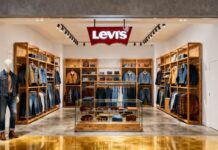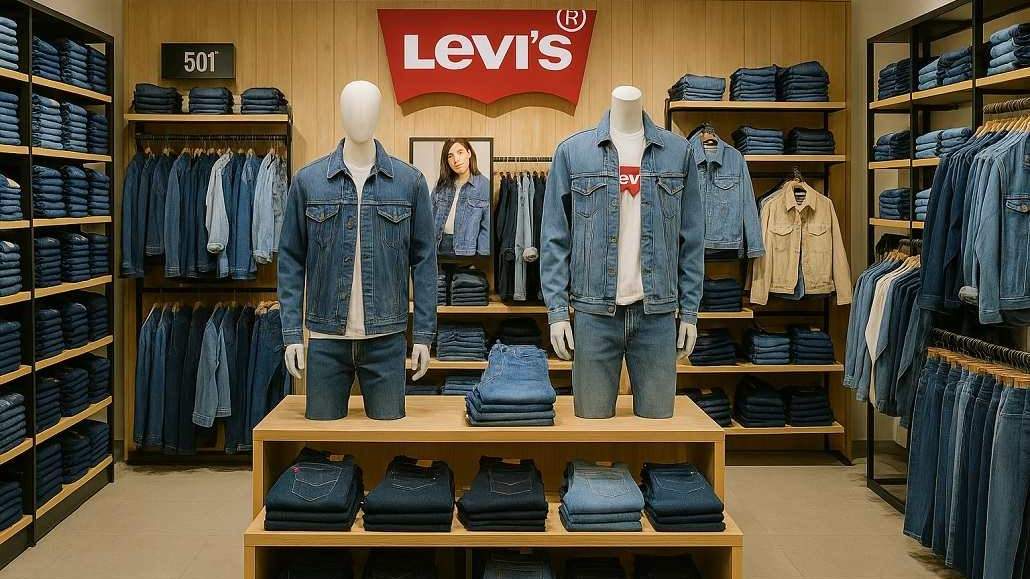Levi Strauss & Co., the iconic US-based clothing retailer, announced impressive financial results for the second quarter (Q2) of 2025, reporting net revenues of $1.4 billion. This marks a 6% increase on a reported basis and a noteworthy 9% rise on an organic basis compared to the same quarter last year.
The company’s direct-to-consumer segment saw a significant 11% increase in net revenue, while its wholesale channel reported a 3% growth during the same period. The globally recognized Levi’s brand experienced a 9% organic revenue growth, showcasing the brand’s strong market presence.
Levi Strauss also reported a rise in its gross margin, which increased by 140 basis points to reach 62.6%, primarily driven by reduced product costs and a favorable mix of sales channels. The company posted a net income of $80 million from continuing operations, a substantial rise from the $17 million reported in the previous year. Adjusted net income stood at $89 million, with adjusted diluted earnings per share (EPS) increasing to $0.22.
Michelle Gass, CEO and president of Levi Strauss, expressed confidence in the company’s performance, stating, “We delivered another strong quarter, reflecting broad-based strength across the board. This is clear evidence that our strategic agenda is gaining traction.” She emphasized the company’s transition into a denim lifestyle brand and a top-tier direct-to-consumer retailer.
Looking ahead, Levi Strauss has revised its fiscal 2025 guidance, considering that US tariffs on imports from China will remain at 30% and 10% for products from other regions for the rest of the year. The company now anticipates a 1% to 2% growth in reported net revenues, an improvement from the previous forecast of a decline. Additionally, it has adjusted its organic revenue growth projections to 4.5% to 5.5%.
Harmit Singh, the company’s chief financial and growth officer, noted, “Given our strong H1 and continued momentum across the business—and despite higher tariffs—we are raising our full-year revenue and EPS expectations.” This reflects Levi Strauss’s commitment to focusing on the core Levi’s brand and advancing its direct-to-consumer strategy, positioning the company for sustained growth and higher returns on invested capital.
In a strategic move, Levi Strauss recently agreed to sell its Dockers brand to Authentic Brands Group for a base amount of $311 million, further streamlining its operations to focus on its flagship brand.

































